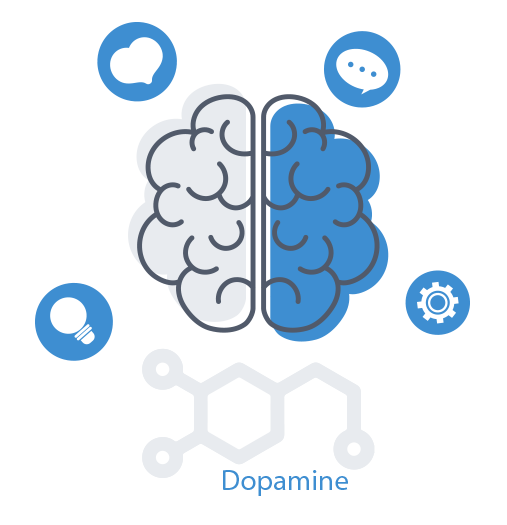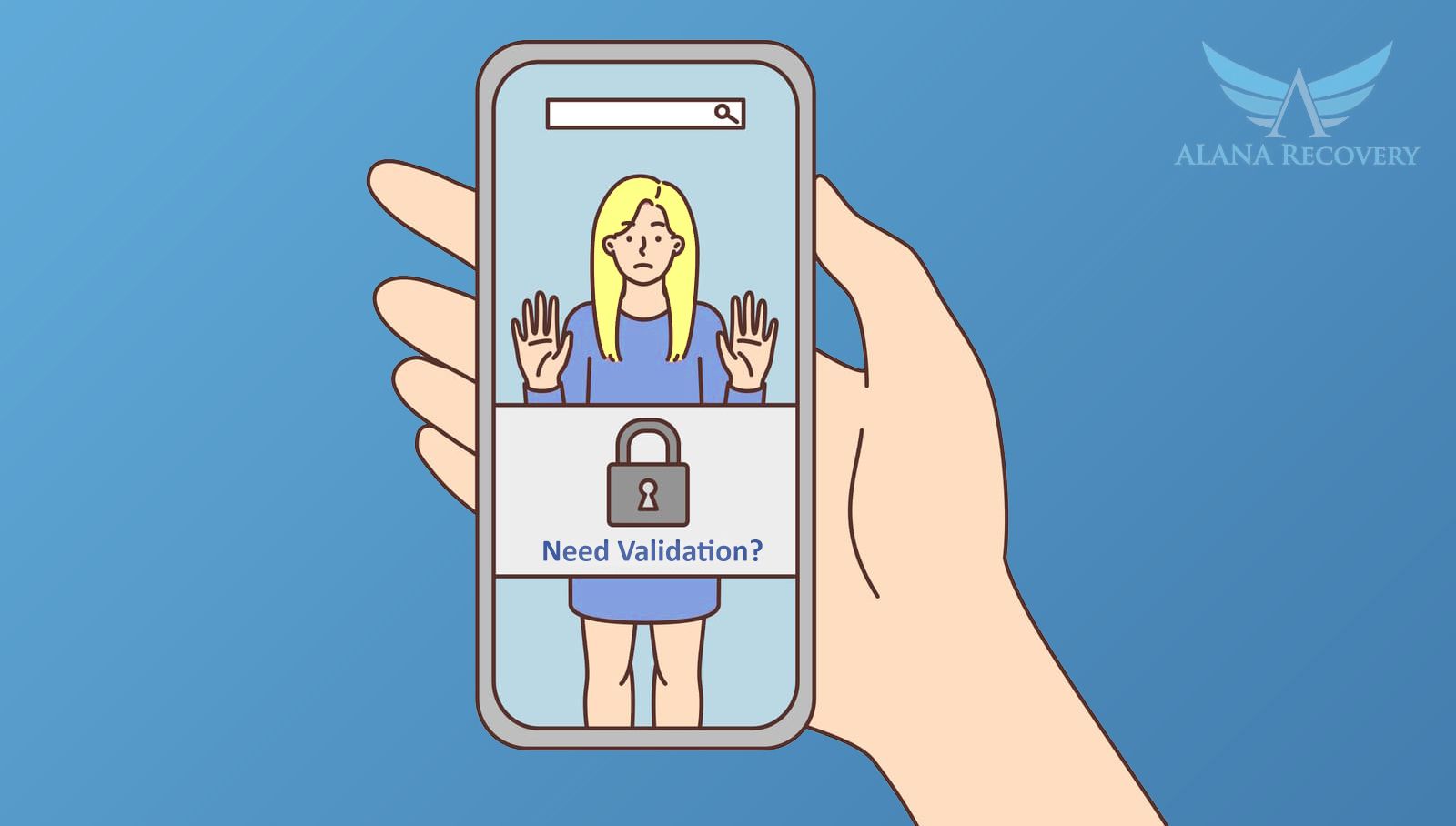In the digital age, social media has become an integral part of modern life. It is no surprise that addiction to attention can arise when it comes to this type of platform.
Simping behavior refers to engaging in excessive flattery or obsequiousness for the purpose of gaining approval from another individual. Research on this topic has been conducted across various disciplines ranging from psychology to sociology.
The findings suggest that simping behavior could be a response to one’s need for recognition, validation, and acceptance within their online space and community. Furthermore, there are implications for mental health issues as well as potential safety concerns associated with addiction to attention through social media platforms.
Social Media Addiction And Its Negative Effects
Social media platforms are engineered to be highly addictive, capitalizing on our innate desire for attention and validation. These platforms utilize a dopamine-driven reward system, in which likes, comments, and shares trigger the release of this feel-good chemical in our brains, reinforcing our addiction to attention.
Alarmingly, the
American Psychological Association
has reported a significant correlation between social media usage and negative effects on teenagers’ mental health. Prolonged exposure to social media can lead to increased anxiety, depression, and self-esteem issues, as adolescents constantly compare themselves to others and seek validation from their peers.
Simping behavior, or the act of seeking attention on social media platforms, is a clear indicator of addiction to social media and its associated reward system. This behavior can lead to further psychological issues, such as a feeling of low self-worth, if the individual is not successful in obtaining the attention they are seeking.

Dopamine-Driven Reward System

Social media has been shown to activate the dopamine-driven reward system, providing users with a sense of satisfaction for engaging with the platform and its content.
The high levels of dopamine release associated with social media use can lead to increased levels of anxiety and depression if an individual is not able to meet their own expectations for engagement on the platform.
The dopamine-driven reward system associated with social media addiction is characterized by an individual’s need for validation, attention, and approval from peers. This seeking of external validation triggers a release of the neurotransmitter dopamine when achieved which reinforces the behavior.
A
s such, it has been suggested that this reward system can lead to simping behavior; where individuals overstate their admiration or interest in others in order to be rewarded with acceptance and attention. Such exchanges are often seen on platforms like Twitter and Instagram where people post flattering comments, compliments, or gifts in return for recognition from the recipient.
Unfortunately, these activities can become addictive as users continuously strive for more likes and followers resulting in negative mental health effects such as anxiety, depression, and low self-esteem.
Anxiety
Research has shown that
social media addiction
can lead to anxiety in teens due to the need for constant external validation.
This seeking of approval from peers through attention-seeking behavior such as simping on platforms like Twitter and Instagram, is driven by dopamine release when achieved and reinforces the behavior.
As a result, individuals often compare themselves to unrealistic standards of beauty seen online which can negatively affect their self-esteem issues and sense of worth.

Furthermore, this instant gratification mentality may cause people to prioritize online relationships over real life ones leading to further stressors associated with loneliness and disconnection.
Ultimately, these effects of social media addiction create an environment where users feel anxious about not getting enough likes or followers – leaving them vulnerable to negative mental health outcomes such as substance abuse that requires professional addiction treatment.
Depression and Self-Esteem
Depression and self-esteem are both known to be affected negatively by social media addiction. This is due in part to the tendency of users to compare themselves to unrealistic standards seen online, which can lead to feelings of low self-worth and inadequacy.
Additionally, simping behavior encourages unhealthy relationship habits that may further contribute to a sense of loneliness or disconnection from reality, leading to depression.
It is important for individuals engaging with social media platforms to establish healthy relationship boundaries so as not to succumb to these negative effects on mental health.
Simping Behavior And The Need For Validation

Simping is defined as an excessive or obsequious display of attention and admiration, usually from men towards women, with the expectation of receiving validation in return.
It is driven by the individual’s need for validation, which is a strong emotional need to feel accepted or appreciated.
This need for validation can fuel unhealthy relationship habits such as over-investment in others, neglecting one’s own emotional needs, and seeking out validation through inappropriate behavior.
This behavior is often seen within social media networks, where the individual uses excessive flattery and compliments in order to receive validation.
In extreme cases, people can become addicted to the validation they receive from others, often leading to further unhealthy relationship habits.
Simping
is a slang term that has been used since the early 2000s in online communities and can be defined as an excessive demonstration of submissiveness or affection towards someone, often seeking validation and attention from them.
You can
learn more about Simping here >
Simping can lead to unhealthy relationship habits such as neglecting real-life connections in favor of virtual ones; this may result in feeling empty due to not having tangible relationships with people outside of their screens.
It’s important for individuals to remember that meaningful connection cannot completely transpire th
rough digital means alone.
Desire For Validation
The desire for validation is a well-known trait of human nature that can be seen in many aspects of life, and this also applies to simping behavior.

Research has shown that online users may seek out virtual relationships as an outlet for their need for recognition from others.
This could explain why people become so invested in these interactions—they are looking for something they believe will give them the approval or attention they crave.
As such, it’s not surprising that the majority of those engaging in simping behavior tend to prioritize their digital relationships over real-life ones.
While both physical and virtual connections have their virtues, individuals should remember to place emphasis on forming meaningful bonds with other people outside of cyberspace so as to avoid feeling empty due to unfulfilled emotional needs.
Unhealthy Relationship Habits
When individuals become overly reliant on virtual relationships for validation, it can lead to unhealthy relationship habits.
This includes the neglect of real-life connections and prioritizing digital interactions over actual human contact.
As such, this behavior may be detrimental to their overall well-being as they risk feeling isolated from others due to an unfulfilled need for recognition and approval.

Such a situation could potentially have long-term consequences that are both mental and emotional in nature, highlighting the importance of engaging in meaningful socialization with people outside of online platforms.
Unrealistic Standards Of Beauty And Self-Esteem Issues
Social media often perpetuates unrealistic beauty standards that can cause body image issues and negatively influence self-esteem. This is done through a constant comparison of the user to other individuals, leading them to question their own physical appearance and worthiness.
To combat this unhealthy behavior, it is important for users to recognize these potentially damaging standards and challenge them accordingly. Some helpful tips from the National Eating Disorders Association include:
-
- Developing healthy coping skills
-
- Identifying which social media accounts are influencing negative thoughts
-
- Utilizing supportive friends or family in times of need
-
- Seeking professional help when necessary
While there may be an unavoidable level of comparison on social media platforms, it is essential to remember that each individual’s life should not be judged by the images they choose to display online; rather, we must look at the full picture of who they are as a person before forming any judgments or opinions.
From here, attention seeking behavior and instant gratification take center stage as underlying motivations behind addiction to attention via social media – topics which will be discussed in further detail in the following section.
Attention Seeking Behavior And Instant Gratification
As social media continues to evolve, so does its potential for influencing behavior.
Recent studies have shown that heavy use of social media can lead to
attention-seeking behaviors
, as well as an increased desire for instant gratification.
This mindset is often characterized by impulsive decision-making and a lack of genuine connection with others.
As such, it is important to be mindful of the power of social media in our lives and strive towards developing healthy relationship habits that will allow us to form more meaningful connections.

To do this, we must recognize how our own past experiences, identities, values, and beliefs influence our approach to relationships online and offline.
It is then possible to cultivate healthier ways of interacting with others by learning effective communication skills and understanding how different types of relationships require different approaches.
Seeking Help and Support
-
- Seeking help and support can take many forms, ranging from informal support networks of family and friends to seeking professional help from mental health professionals.
-
- Social media can be a source of support for those struggling with addiction, as it can facilitate connection with others in similar situations and provide access to resources.
-
- However, some forms of social media use can fuel addictive behaviors, such as simping behavior, which is characterized by excessive attention seeking and validation from others.
-
- Professional help is essential for those who are experiencing addiction to attention, as it can help to address underlying issues and create strategies to combat simping behavior.
Types of Support
Various forms of treatment are available to individuals seeking help for social media addiction and simping behavior.
Cognitive Behavioral Therapy (CBT) has been suggested as a particularly useful approach, as it can address both the underlying psychological issues motivating excessive use of social media while also teaching effective strategies for managing online activities.
Other types of therapy such as Dialectical Behavior Therapy (DBT), Acceptance and Commitment Therapy (ACT), Interpersonal Process Group Therapy (IPGT), and Eye Movement Desensitization Reprocessing (EMDR) may be helpful in understanding why people engage in self-destructive behaviors related to attention seeking on social media.
Additionally, research indicates that
intensive outpatient programs (IOPs)
, partial hospitalization programs (PHPs), and
outpatient programs (OPs)
may provide an effective course of action to treat this type of addiction by addressing personal triggers and helping individuals develop healthy coping skills.
Through evidence-based therapeutic approaches like these, those struggling with excessive use of digital devices or compulsive online behaviors can find relief from their symptoms and begin to reclaim control over their lives.
Seeking Professional Help
Professionally-led treatment interventions have been identified as a key factor in the successful management of social media addiction and simping behaviors.
Through participation in structured programs such as
intensive outpatient (IOP)
, partial hospitalization (PHP), or regular outpatient (OP) treatments, individuals can learn how to regulate their online activities more effectively, develop healthier relationships, increase self-esteem, and ultimately gain greater control over their lives.

These services involve evidence-based approaches like cognitive behavioral therapy (CBT), dialectical behavior therapy (DBT), acceptance and commitment therapy (ACT), interpersonal process group therapy (IPGT), and eye movement desensitization reprocessing (EMDR).
By seeking professional help through these types of therapeutic interventions, those struggling with this disorder may be able to begin forming new habits that promote long-term recovery.
Conclusion
It is evident that social media can fuel attention-seeking behavior, often referred to as simping. When left unchecked, this type of addiction can be incredibly damaging to one’s mental health and relationships.
In order to prevent it from taking root, it is important for individuals to assess their own self-esteem levels and build healthier ways of validating themselves without relying on external sources of approval.
Additionally, support groups can provide invaluable resources and a safe environment in which those struggling with an addiction to attention can find help.
Like the mythical sirens luring sailors astray, social media requires caution if one wishes to avoid its potentially destructive effects. A close examination of our habits and behaviors may just save us from succumbing to its allure.
Frequently Asked Questions

